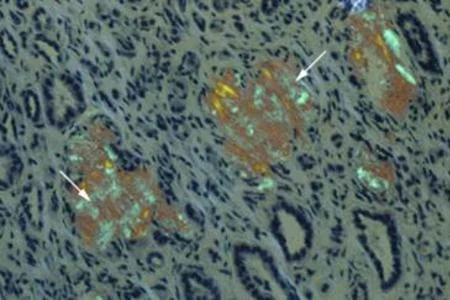The Mayo Clinic has been committed to the care of patients with all forms of amyloidosis for 70 years. Mayo Clinic care is characterized by holistic, patient centered, and multidisciplinary care. Mayo Clinic puts the needs of the patient above all other considerations. Unique to Mayo Clinic model of care is it provides all specialization required for the integrated care of patients with amyloidosis and they are all housed in a single building. Mayo Clinic has a team of hematologists, neurologist, nephrologists, cardiologists, organ transplant exerts, pathologists, and scientists all of whom are committed to cutting edge care for patients with all forms of amyloidosis.
In addition to the physicians that provide face-to-face patient care, we have laboratory facilities including blood, imaging, and pathology that have been at the forefront of the development of patients with amyloidosis. The Mayo Clinic developed the first clinical trial for the treatment of patients with immunoglobulin light chain amyloidosis and developed one of the most commonly used front-line therapies (CyBorD) in use today. Mayo Clinic also first described symptomatic cardiac wild-type TTR and light chain amyloidosis. The use of the immunoglobulin free light chain assays for amyloidosis was first developed at Mayo Clinic. The use of mass-spectrometry to type amyloid was commercialized by the Mayo Clinic, making it available to patients.
A multi-disciplinary evaluation at the Mayo Clinic generally takes about three business days and allows for the development of an individualized treatment plan and assessment of prognosis. Because of the large numbers of patients that Mayo Clinic sees with amyloidosis (>2200 visits per year), cutting edge clinical trials are available utilizing new agents that are promising in the treatment of amyloidosis that are generally not available at smaller centers. From January 1, 1963 - December 31, 2016, Mayo Clinic has seen a total of 7302 unique patients with all forms of amyloidosis. This vast experience ensures that your provider team will have knowledge of your disease and any potential complications in dealing with this unique and rare disorder.


